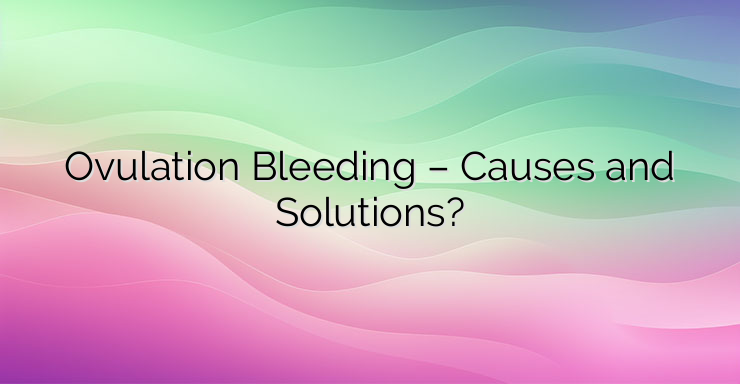In the majority of women, ovulation occurs without significant manifestations. In others, however, it manifests itself with light bleeding, which is not worrisome. It is recommended to consult a specialist for bleeding that occurs outside of menstruation. Why do some women experience bleeding during ovulation? In some women, the appearance of light spots in the middle of the cycle is observed. These hemorrhages are not of pathological origin. It is assumed that they are due to the physiological phenomenon of ovulation: the fluid tension of the ovarian follicles increases and eventually leads to the rupture of the follicle and the expulsion of the egg. Sometimes the rupture of the follicle is more abrupt and causes the rupture of a small blood vessel, which is the basis of these small benign hemorrhages. Other causes of bleeding during periods There are other causes of metrorrhagia – bleeding between periods or spotting – small traces of blood between periods: A small wound on the cervix after intercourse, a vaginal examination or a cervical smear. After that, the bleeding is usually light and stops spontaneously. Likewise, a vaginal wound or infection can cause bleeding; Hormonal disorders that can be caused by psychological stress; Poorly adapted or inappropriate hormonal contraception Uncontrolled bleeding can occur with the use of microprogestins – tablets, implant, hormonal spiral, when they turn out to be insufficiently dosed for the patient, and even with the use of estrogen-progestins. Bleeding between periods is also often observed with the use of hormonal IUDs; With irregular intake of oral contraceptives – especially microprogestogen; Atrophy of the endometrial mucosa after several months or years of taking hormonal contraceptives. Temporary intake of therapeutic agents containing estrogen will regenerate the mucosa. Is consultation with a specialist necessary? Bleeding between periods is usually light and is most often due to hormonal imbalance or even ovulation if it occurs in the middle of the cycle. However, it is advisable to consult a specialist for bleeding between periods, especially if it is accompanied by pain. It is important to rule out uterine fibroids, polyps, miscarriage, ectopic pregnancy, genital infection or even cervical cancer. References: https://www.passeportsante.net/famille/projet-enfant?doc=saignements-ovulation


Leave a Reply